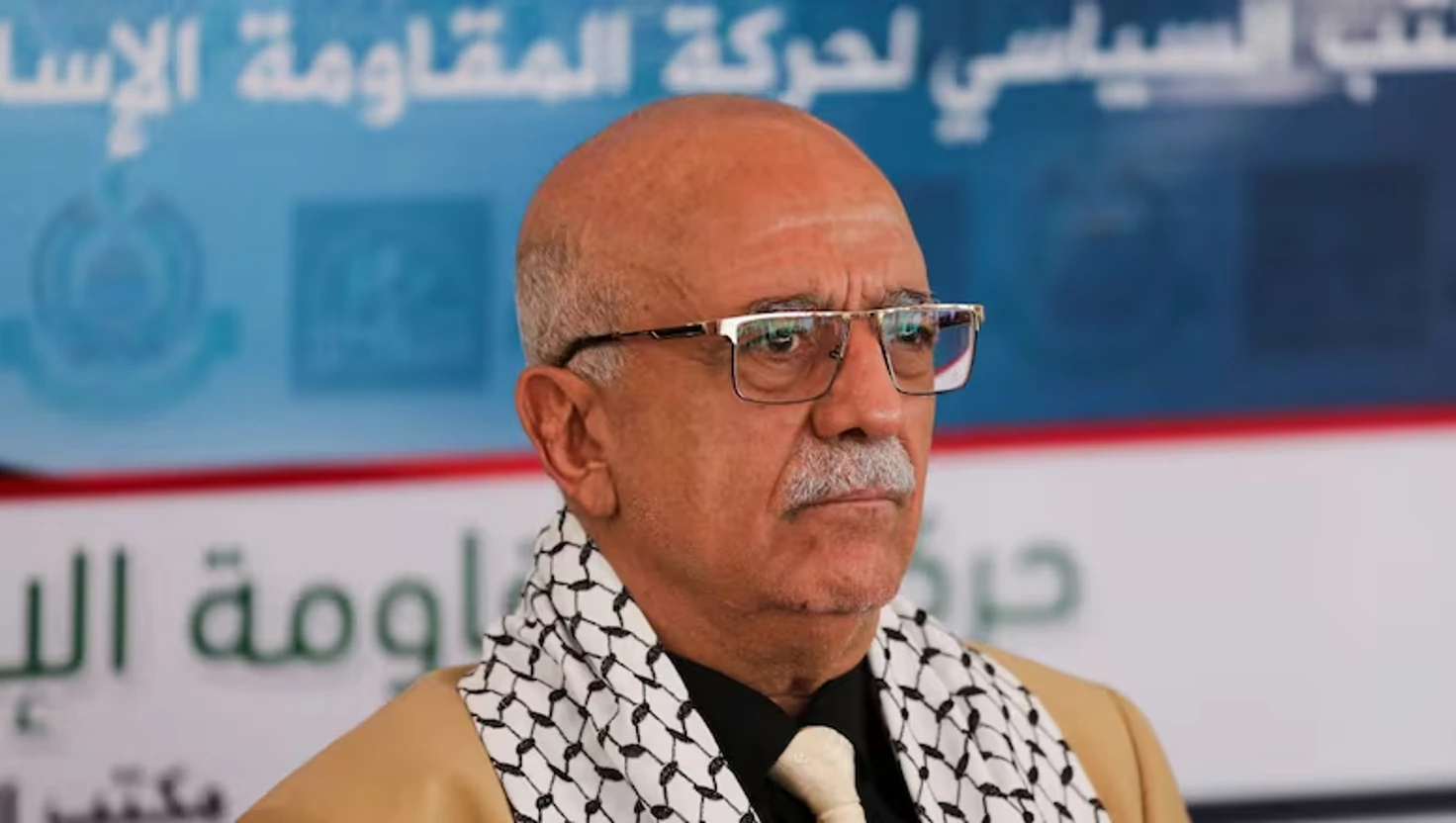Israeli Strike Kills Houthi Prime Minister in Yemen

Israeli Strike Kills Houthi Prime Minister in Yemen
The prime minister of Yemen's Houthi government has been killed in an Israeli airstrike, escalating tensions in the region significantly.
An Israeli airstrike in Yemen's capital, Sanaa, has reportedly killed Ahmed al-Rahawi, the prime minister of the Houthi-led government. The strike, which occurred on Thursday, also resulted in casualties among several other ministers of the rebel-controlled administration, according to a statement released by the Houthis on Saturday.
Ahmed al-Rahawi, who had held office since August 2024, was targeted during a workshop intended to review the government's activities over the past year. The strike coincided with a broadcast from the Houthi-run television channel, featuring a speech by Abdul Malik al-Houthi, the group’s leader, in which he updated followers on the ongoing warfare in Gaza and promised retaliation against Israel.
The reported attack marks a significant escalation in hostilities in the region, with the Houthis continuing to launch missile assaults on Israel amid the ongoing Israel-Hamas conflict. The group maintains that their military actions are taken in solidarity with the Palestinian cause and have vowed to persist despite Israeli airstrikes.
Mahdi al-Mashat, a senior Houthi politician and military officer, expressed defiance following the airstrike, declaring, “We shall take vengeance, and we shall forge from the depths of wounds a victory.” He called for foreign entities operating in Israel to withdraw before conflicts worsen.
The Israeli military characterised the airstrike as a targeted action against a 'Houthi terrorist regime military target' but did not provide further commentary following the announcement of al-Rahawi's death. Reports suggest the airstrike may have been part of a broader shift in Israeli military strategy, moving from targeting Houthi infrastructure to directly eliminating their leadership.
Al-Rahawi’s death marks the highest-ranking member of the Houthi government to be affected since the commencement of a coordinated campaign involving both the United States and Israel against the group, which has frequently launched missile attacks against Israel and vessels navigating the Red Sea.
Ahmed Nagi, a senior analyst at Crisis Group International, characterised the event as a 'serious setback' for the Houthis, illustrating a growing threat to their operational structure.
Since the uptick in conflict, Israeli forces have targeted various Houthi positions, responding to missile attacks from Yemen. The escalation in hostilities has severely affected shipping in the Red Sea, a vital maritime route, with an estimated $1 trillion worth of goods transiting annually.
In previous months, Russia had reported that the Houthis targeted shipping lanes and military ships in the Red Sea, asserting their right to respond to ongoing aggressions from Israel. Just last week, Israel conducted aerial strikes on multiple locations in Sanaa that resulted in numerous civilian casualties.
The overall situation remains tense, with no clear resolution in sight. As both sides prepare for further conflict, the humanitarian impact continues to unfold amid concerns for both the civilian population in Yemen and the broader implications for Middle Eastern stability.
Ahmed al-Rahawi, who had held office since August 2024, was targeted during a workshop intended to review the government's activities over the past year. The strike coincided with a broadcast from the Houthi-run television channel, featuring a speech by Abdul Malik al-Houthi, the group’s leader, in which he updated followers on the ongoing warfare in Gaza and promised retaliation against Israel.
The reported attack marks a significant escalation in hostilities in the region, with the Houthis continuing to launch missile assaults on Israel amid the ongoing Israel-Hamas conflict. The group maintains that their military actions are taken in solidarity with the Palestinian cause and have vowed to persist despite Israeli airstrikes.
Mahdi al-Mashat, a senior Houthi politician and military officer, expressed defiance following the airstrike, declaring, “We shall take vengeance, and we shall forge from the depths of wounds a victory.” He called for foreign entities operating in Israel to withdraw before conflicts worsen.
The Israeli military characterised the airstrike as a targeted action against a 'Houthi terrorist regime military target' but did not provide further commentary following the announcement of al-Rahawi's death. Reports suggest the airstrike may have been part of a broader shift in Israeli military strategy, moving from targeting Houthi infrastructure to directly eliminating their leadership.
Al-Rahawi’s death marks the highest-ranking member of the Houthi government to be affected since the commencement of a coordinated campaign involving both the United States and Israel against the group, which has frequently launched missile attacks against Israel and vessels navigating the Red Sea.
Ahmed Nagi, a senior analyst at Crisis Group International, characterised the event as a 'serious setback' for the Houthis, illustrating a growing threat to their operational structure.
Since the uptick in conflict, Israeli forces have targeted various Houthi positions, responding to missile attacks from Yemen. The escalation in hostilities has severely affected shipping in the Red Sea, a vital maritime route, with an estimated $1 trillion worth of goods transiting annually.
In previous months, Russia had reported that the Houthis targeted shipping lanes and military ships in the Red Sea, asserting their right to respond to ongoing aggressions from Israel. Just last week, Israel conducted aerial strikes on multiple locations in Sanaa that resulted in numerous civilian casualties.
The overall situation remains tense, with no clear resolution in sight. As both sides prepare for further conflict, the humanitarian impact continues to unfold amid concerns for both the civilian population in Yemen and the broader implications for Middle Eastern stability.

Federal Court strikes down most US tariffs, saying Trump overstepped authority
A federal appeals court has struck down key tariffs imposed by Trump, citing overreach of presidential authority. The ruling may challenge his trade policy.
| 2025-08-30

US and India relationship complicated, will eventually reach a trade deal, says Treasury Secretary
Scott Bessent highlights complexities in US-India ties amidst tariff tensions but expresses optimism for future collaboration.
| 2025-08-28

Steep US tariffs Hit Indian Exports: Units in Tirupur, Noida & Surat Halt Production
US tariffs rise to 50% affecting India's textiles, seafood, and jewellery exports, causing production halts in key regions.
| 2025-08-27

Maruti Suzuki Launches Local Battery Production for Electric Vehicles
Maruti Suzuki's new facility in Gujarat will produce batteries for the e-Vitara and hybrids, enhancing India's green mobility efforts.
| 2025-08-27

Apple iPhone 17 Pro Rumoured to Feature Reverse Wireless Charging
Leaked information suggests Apple’s iPhone 17 Pro may introduce reverse wireless charging, enabling it to power accessories like AirPods and Apple Watch.
| 2025-08-27




